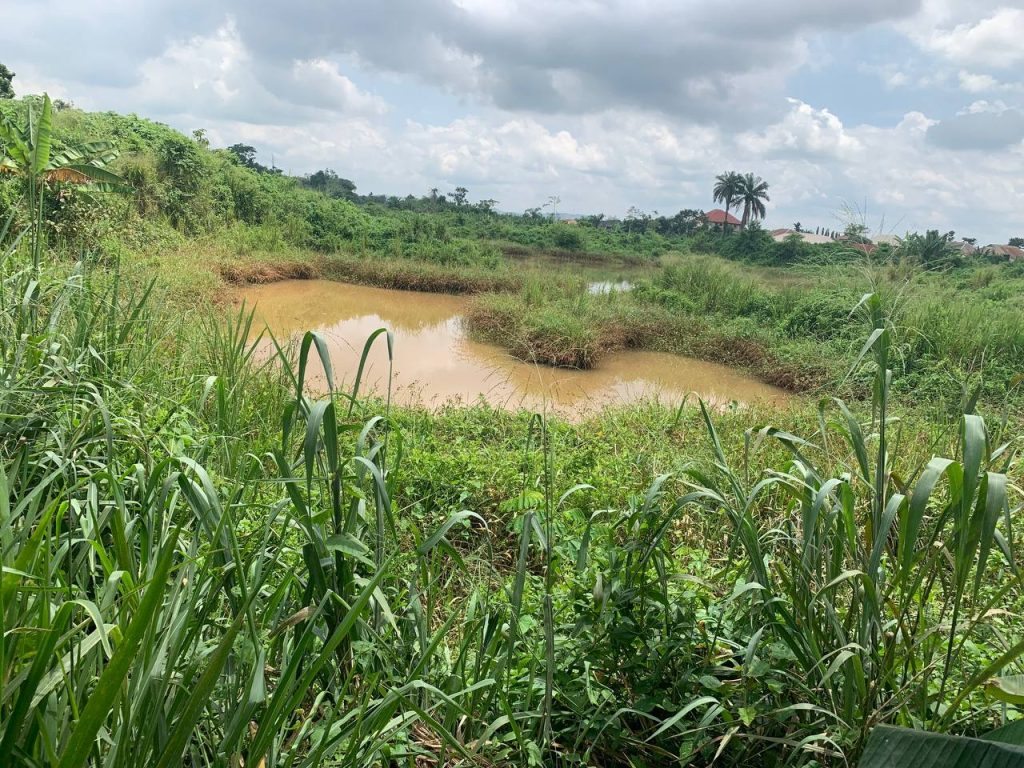For years, Nigeria’s Osun and Kogi states have grappled with the negative impact of illegal mining operations. From environmental pollution to loss of livelihoods, the effects of these operations have been felt by communities in both states. In addition to the physical damage to the landscape, the health of residents has also been affected. In this report, SODIQ TEMITOPE writes about how illegal mining operations have made life unbearable for some rural Kogi and Osun States residents.
Gold mining in Osun and Kogi States appeared to be the main cookie jar for some Chinese expatriates who allegedly work in connivance with government officials to operate illegally, while the residents continue to bear the brunt.
A legal practitioner at the Abegbo Chambers, Solicitors, and Advocates, Habeeb Whyte said he had to step down in 2020 as a lawyer for some of the Chinese companies as his “mind could not take being on the side of injustice”.
Whyte, who is a Nigerian lawyer revealed that many of the mining companies obtain licenses through corrupt means.
“I was a counsel for some of them. I consulted for more than five years. It is like somebody asking me questions like how we do it, and any other thing. I told them the way and manner to follow and what to do.
“But because they know that people like me will not bend to their illegality, these companies went to obtain some license through the backdoor because they know that in Nigeria, anything can happen,” he revealed.
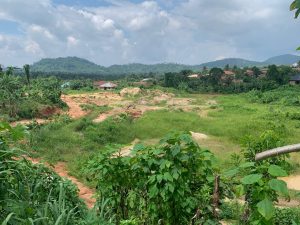
Mining holes dug by miners for gold and other precious stones litter various rural communities in Nigeria, including the Southwestern Osun state and the Northcentral Kogi State.
To understand the impact of mining activities on the health of citizens, Platform Times reporter visited major mining spots in Osun state. The stories are similar, characterised mainly by noise and water pollution.
In remote communities such as Odin, Kosere, Agbadagudu, Lojairoko, and Afeke, in Osun State, water source supplies have been polluted by hazardous chemicals resulting from mining activities, mostly due to the ignorance of many residents.
The Osun State governor Ademola Adeleke once decried the adverse effects of illegal mining on the well-being of residents of the state. The displeased Governor, while inaugurating a committee set up to monitor and regulate mining activities in the state, vowed to bring all illegal miners to books.

He demanded that illegitimate miners, whose activities have contributed to land degradation and water pollution in the state, must take immediate steps towards remedying the situation.
“River Osun has been polluted and our people are dying as related sicknesses are spreading. These are sad realities which none of the mining companies has raised a finger to address,” says Adeleke.
Tolani Adesope, a resident of Agbadagudu used to drink water from her neighbour’s well.
“The water from the well looked sparkling clean, but after falling sick constantly, my nurse advised me to consider another source of water. Buying a sachet of water for my three children and I to drink is expensive but we have no choice,” the petty trader and single mother lamented.
However, a large number of people cannot afford sachet water for drinking, leading them to ignore chemical spills in their wells and streams. Sachet water is a common form of selling pre-filtered or sanitized water in plastic, heat-sealed bags in parts of the global south, and is especially popular in Africa.
Some of the residents of Osun State complained of experiencing diarrhea a couple of times in 2023.
A resident of Kosere, Joy Okeowo told Platform Times that, she was recently hospitalized after months of chest pain.
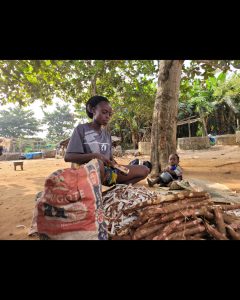
She noted that the doctor told her to check the water she drinks.
“I am still drinking the water sha (sic). What can I do? These people who are digging the soil (miners) would not leave.”
Since 2011, the residents of Kogi and Osun States have had to endure the environmental and social impact of illegal gold mining operations.
According to an article published by the International Centre for Investigative Reporting, the Nigerian government lamented illegal operations, often carried out by some Chinese expatriates, have led to deforestation, water pollution, and the destruction of agricultural land.
The government noted that noise and dust from the mining activities have also impacted the health of residents and caused a decline in tourism.
The situation has been made worse by the perceived complicity of government officials, who have failed to take action against the illegal miners.
Contaminated water; Residents at risk of cardiovascular diseases
It’s difficult to determine the vast number of people who have suffered health complications from polluted water due to poverty in the areas, of Osun and Kogi States.
During the visit to these areas, Platform Times correspondent discovered that residents rely on herbal remedies or wait for the illness to pass before seeking medical help.
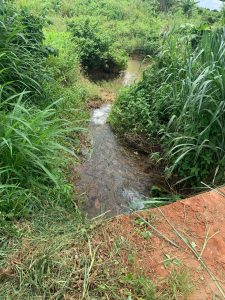
The lack of clean water affects more than 30 communities, putting their health at risk. Illegal mining activities are blamed for releasing harmful substances into the water sources, leading to contaminated rivers and damaged farmlands.
Platform Times correspondent, during the visit to some of the communities, observed that what used to be a natural vegetative area was fast turning into a worksite, where excavators, among other sophisticated machines, were in use.
Residents of communities in the illegal mining sites in Kogi and Osun are currently exposed to heavy metals that are capable of causing brain and kidney damage, tremors, impaired vision, paralysis, and cancer.
A resident claimed that the vulnerable white-throated monkeys and sitatunga antelopes drinking from the Osun River are also facing extinction.
Some of the residents who spoke with Platform Times correspondent, alleged that the Chinese miners continue to enter farmlands in search of gold and other mineral resources.
“Since 2011 till this moment, the Chinese have continued to cause jeopardy in our community, they keep searching for gold. Digging holes and polluting our rivers,” one of the residents of Afeke in Osun State complained.
Counting their losses, the affected residents lamented that they have resorted to walking long distances to get water for their daily use.
Noise Pollution: Sleeping becomes a luxury
The mining site in Odin, Kosere all in Osun States had been abandoned since 2017, but the effect could still be seen in the stream that flows through the community. The mining site in Agbadagudu was only shut after the governor’s directive last year.
Apart from the health hazards, people are also confronted with noise pollution. When the mining sites were in full operation, sleeping was a luxury for the people of Kosere and Agbadagudu in particular.
“For the months they were here, sleeping was a trouble. We thank God they’ve gone.” said a resident of Agbadagudu who identified herself simply as Ajoke. She said they (residents complained to village heads but nothing was done.
“Apparently, these miners have paid some powerful people in the state. Because they always show us some papers to prove that what they are doing is right,” she added.
A report by the Nigeria Extractive Industries Transparency Initiative showed that a large number of the illegal miners in these two states are Chinese expatriates.
The NEITI’s report showed mining activities in Nigeria in 2020 were carried out by 102 companies. Information about beneficial ownership was provided for 65 of these companies.
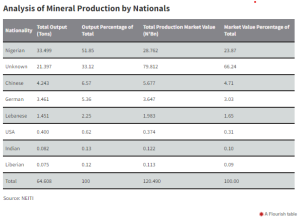
Details of ownership show that 28 of them were owned by Chinese nationals. This means 43.08% of the companies that mined minerals in 2020 were owned by Chinese nationals.
Further insight showed Nigerians owned 23 of these total 102 companies. The companies owned by Nigerians made up 35.38 percent of the total that mined minerals in 2020.
A study by the United Nations Environment Programme found that illegal mining can have serious environmental consequences, including air and water pollution, deforestation, and soil erosion.
The study also found that the contamination of water sources by mercury, arsenic, and other heavy metals from mining operations can lead to health problems, including neurological disorders, respiratory diseases, and birth defects.
The UNEP study concluded that illegal mining is a “major environmental and social challenge” that needs to be addressed through better regulation and enforcement. It also called for greater investment in alternative livelihoods for people living in areas affected by illegal mining, to help them transition away from harmful activities.
Illegal mining ‘eating’ deep in Nigeria
The Nigerian Mining and Minerals Acts of 2007 states that no one may explore for mineral resources other than in accordance with the act’s provisions. The act outlines processes for the right to search for or exploit mineral resources, an exploitation license, a mining lease, a quarry lease, and a water usage permit. It also specifies how advancements in the solid minerals sector would be monitored.
According to the Act, once a license has been obtained, miners are required to keep the area under license in a safe condition and prevent any disturbances brought about by exploration activity.
The Act also created a mining cadastre office, which is in charge of granting licenses and permits and encouraging investment in the mining industry.
The importance of ensuring that mining operations are conducted legally, without infringing upon human rights and causing environmental degradation, is reiterated in the 2011 Minerals and Mining Regulation , which affirms the necessity of ensuring that mining operations are conducted legally, without infringing upon human rights and without causing environmental degradation.
It further read that the minister has the authority to designate any vacant area as a place where mining and exploration licenses will be granted through competitive bidding that will be published in a widely read national newspaper and the Gazette.
Despite the different policy and law provisions, the industry continues to suffer losses
Former Director of Nigeria Extractive Industry Transparency Initiative (NEITI), Dr Dieter Bassi, was quoted as stating that Nigeria loses between $2-$3 billion to illegal mining.
The Nigerian government revealed its desire to reform the sector repeatedly, even the recently released National Development Plan 2021-2025 features the mining sector prominently. The plan hopes to increase mining contributions to the GDP by 3%.
In an investigative report by Punch newspaper, it was revealed that despite multiple reports of Chinese illegal miners being arrested in various states in Nigeria, the unlawful operations have persisted, causing hardship for the residents of the impacted towns.
On May 4, 2020, alone, 17 Chinese, 10 locals, and one community leader were arrested in the regions of Ilesa and Ife of Osun State by men of the Amotekun corps.
In October 2020, former President Muhammadu Buhari, set up a mining police comprising the Inspector-General of Police, Chief of Army Staff, National Security Adviser, and others, but one year after, the illicit act continued unabated. Thereafter, he banned mining activities in Zamfara State and declared the state a “no-fly zone” due to worsening insecurity.
But the illegal miners simply relocated to Osun State and continued their illegal activity.
A mining expert and geologist, Felicia Aina said one of the major challenges bedeviling the Nigerian mining sector is the prevalence of illegal or otherwise informal mining.
She added, “The situation has degenerated to the point where even foreigners encroach mining sites and cart away mineral resources with impunity. This, by implication, has robbed the government of major revenues that should have ordinarily accrued to its coffers.
“Apart from revenue loss, it has robbed our teeming youths of employment, it has fueled the insecurity currently plaguing the country and it has given the sector a less than stellar reputation thus unable to attract foreign investment,” says Aina.
Kogi residents groan
In the remote farming village of Okobo, in Ankpa Local Government Area of Kogi State, Nigeria, the residents are battling an enemy that threatens to destroy their way of life – illegal gold mining.
For decades, the residents of Okobo have made their living from farming cassava, yams, and other crops. But in recent years, their fields have been taken over by Chinese miners, who have dug up the land in search of mineral resources, especially coal.
Farmers like Ibrahim Ola, a 42-year-old father of four, have seen their crops wither and die, and their livelihoods threatened.
“I used to make a living from farming,” Ola said. “But now the soil is destroyed, and I can’t grow anything. I don’t know how I will feed my family.”
Ola is not alone. Many other farmers in Okobo have had their livelihoods destroyed by the illegal miners. But it’s not just the farmers who are affected. The noise and dust from the mining operations have also impacted on the health of the residents, and the overall quality of life in the village.
Ibrahim Ola’s 10-year-old son, Yusuf, suffers from a chronic cough that keeps him up at night. His mother, Zainab, believes it is due to the dust from the mining operations.
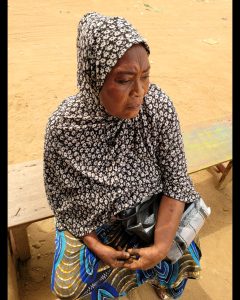
“We have no other choice but to breathe in this dust,” Zainab said. “It’s in the air, and we can’t escape it.”
Other residents of Okobo have reported similar health problems, including headaches, dizziness, and respiratory problems. Some have even moved away from the village, unable to bear the effects of the mining operations.
The Okobo River, a source of drinking water and irrigation for the village, has also been contaminated by illegal mining operations. The water is now muddy and polluted, and the villagers say it is making them sick.
“We used to get our drinking water from the river, but now we have to buy water from a tanker,” said Zainab. “But it’s expensive, and not everyone can afford it.”
From all the communities visited across Kogi and Osun States, it was discovered that those places have now become shadow of themselves with dilapidated buildings and a scarce source of livelihood.
While it was observed that the mining companies had left the communities, the impact is, however, still visible.
Apart from dilapidated buildings serving as shelters for residents in the communities, it was gathered that surviving has been another dilemma for the residents of the community.
In many of the communities, potable water has become a difficult-to-get amenity, following the contamination of their River sources of water due to the search for mining resources in the area.
This reporter observed that while residents in the community were struggling to keep their farming merchandise alive, the extent of damage done to the soil became very hard.
Lab tests ascertain water contamination
Environmental pollution from gold mines is associated mainly with releasing harmful elements from the tailings and other mine wastes. The infiltration of water through sulphide-containing tailings piles and ponds, surface and underground workings, waste, and development rock leads to the leaching of large volumes of metals like Zn2+, Ni2+, Pb2+, AS2+, Cu2+, and sulphate ions into stream and river ecosystems [36,37]. This results in acid mine drainage (AMD) with severe detrimental effects on the receiving water bodies.
Platform Times reporter tested water samples from Kogi and Osun communities,
Also, water sample tests carried out by a laboratory owned by the University of Lagos known as UNILAG Consult confirmed that, the water samples taken from some of the rivers and wells in Kogi and Osun communities were contaminated.
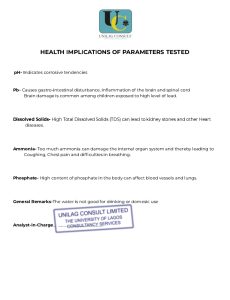
Similarly, the Osun government in a report published by Daily Post in 2023, confirmed illegal miners have contaminated water sources in communities where their activities were taking place.
The Osun governor, however, vowed that he would not allow Osun people to continue to be exposed to polluted river water and cheated by miners, whom he said have not paid any royalties to the state for the past 25 years.
After a laboratory test by UNILAG Consult, chemicals detected include Acidity – P at 35.0 level, higher than the maximum of N5 recommended by the World Health Organisation.
352.o level of Chloride was detected; this is pretty good as the WHO recommended a minimum and a maximum of 200 and 600 levels respectively.
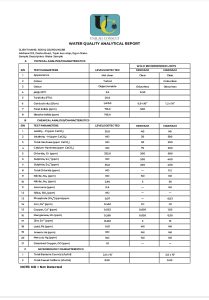
Ammonia was found to be 0.6 in the water, higher than the maximum limit of 0.5 recommended by WHO.
According to the laboratory test, too much ammonia can damage the internal organ system and thereby lead to Coughing, Chest pain, and difficulties in breathing.
Phosphate was also detected at 0.07 which is higher than WHO’s maximum limit of 0.03. Manganese was detected at 0.260 which is higher than its recommended maximum limit of 0.50. Zinc Zn2 is high in the water at 8.232 level but not up to the recommended maximum limit of 15.
The result also shows a 0.01 level of Lead detected, but the WHO recommended that there should never be lead in water.
The medical test report summary revealed that Lead causes gastro-intestinal disturbance and inflammation of the brain and spinal cord. Brain damage is common among children exposed to a high level of lead.
Experts speak
Meanwhile, the Team Lead of Urban Alert, a Civil Rights organisation documenting Illegal mining issues in Osun State, Anthony Adejuwon, said the contamination of Osun River has been confirmed to be a result of the activities of illegal miners.
Adejuwon added that the people were left with no other option than to utilize the contaminated water adding that it is hazardous to their health.
He said “All the rural communities are agrarian communities and looking at the effect on farmers, during the dry season people depend on rivers for irrigation and use water from the river to cultivate vegetables and the rest. Indirectly, people still consume the content in the contaminated rivers.
“The river flows from the mining areas into Osogbo, Ede, some parts of Iwo, and to Oyo State.
“The mining communities even suffer more than the affected communities because not only are the water affected, their farmlands are affected as a result of contamination and the mining also causes erosion and landslides, thereby leading to them abandoning their farmlands.
“It is not only Osun River that is affected, virtually all the water body in Ijesha land is gone, and some parts of Ife areas. Towns and villages like Idooko, Egbeda, Iponda, Ilase, Eti-oni, even within the Ilesa metropolis, and many of them. Those are the mining communities where they are filling the impact of the mining directly.”
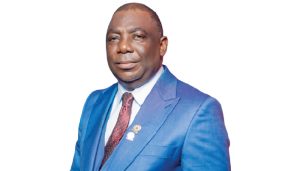
The President, Nigerian Mining and Geosciences Society, Prof Akinade Olatunji, said that illegal mining is extracting mineral resources at whatever volume without the necessary approval from the statutory regulatory authorities.
He added, “As the government loses revenue, the activities of the miners also bring instability to the community where they operate, in terms of environmental degradation, because they don’t operate under the principles set out by the government. They continue to pollute the environment with impunity. They take and disappear, polluting the water bodies and farmland in the process.
“Most times, people don’t even know where these illegal miners come from. They enter a community and create problems, which is why every country frown at people engaging in illegal mining,” said Prof Olatunji.
He further urged the government to implement the law against illegal mining and ensure that it is strictly followed.
Federal Government talks tough
As part of the effort adopted to curb illegal mining and loss of revenue to thefts of solid minerals across the country, the Federal Government said it has put up inter-ministerial measures to fight illegal mining with a view protecting the nation’s endowed natural resources and block the perceived financial leakages, thereby, shoring up the revenue.
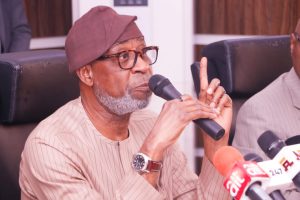
The Minister of Solid Minerals Development, Dele Alake, and his Defence counterpart, Abubakar Badaru, have finalised possible strategies aimed at better securing the mining areas in the 36 States and Federal Capital Territory, Abuja.
In an article published by Business Day, Badaru said the closed-door meeting with the minister of solid minerals was conducted to advance the objectives of President Bola Tinubu-led Administration in eradicating the activities of illegal miners and attendant banditry associated with it.
“The country needs to make huge revenue from mining, but insecurity is bedeviling the industry. That is why the minister is pushing so hard for us to provide serious protection around the mining areas.
“That is why we discuss always to see how we can protect the mining environment, bring lasting peace to the country so that mining will flourish and the country will earn the much-needed foreign exchange from the sector”, the Defence minister said.
Speaking on the proposed new security architecture, the Defence Minister reiterated that plans are underway for clearance operations at flashpoints as a prelude to the deployment of the specialised mining police.
On timelines for clearance operations, Badaru said preparations had reached an advanced stage, citing collaboration with the Solid Minerals Ministry to get the data of all mining sites in the country to enable coordinated security operations.
However, Alake, read a riot act for the umpteenth time to illegal miners and their sponsors, declaring that their (illegal miners) days were numbered, as “the Federal Government is committed to bringing the full weight of the law to bear on those that do not desist from these nefarious activities.”
Meanwhile, the Chinese embassy in Nigeria has expressed support for calls to clean up the Osun River, which feeds into the densely inhabited Lagos lagoon, following months of reporting that Chinese mining companies are partly responsible for polluting the waterway with heavy metals.
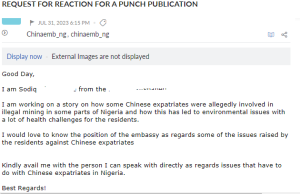
The embassy Tweeted a statement pledging vague support to cleanup efforts, and saying it “will work together with the Chinese Consulate General in Lagos to collect vital information to study the situation.
“It also called on Lagos residents to send data and images of the problem to the embassy, to aid their research,” the Tweet noted.
Efforts to reach the Chinese Embassy in Nigeria failed, as several messages sent to their official mail were never responded to.
On different days, our correspondent called the Chinese Embassy at different times, but the calls were never answered.
This work was produced as a result of a grant provided by the Africa-China Reporting Project at the Wits Centre for Journalism at the University of the Witwatersrand, Johannesburg. The views of this report are of the authors.
Do you want to share a story with us? Do you want to advertise with us? Do you need publicity for a product, service, or event? Contact us on WhatsApp +2348183319097 Email: platformtimes@gmail.com
We are committed to impactful investigative journalism for human interest and social justice. Your donation will help us tell more stories. Kindly donate any amount HERE

